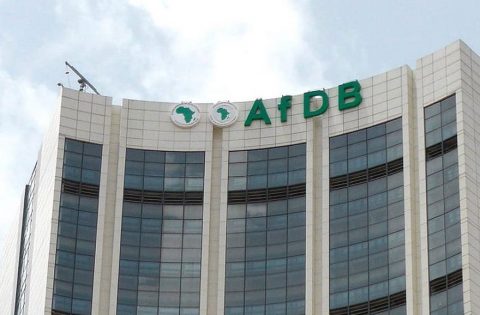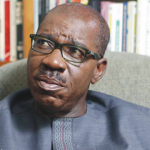African Countries Need More Climate Investments – AfDB
Business News, Featured, Latest Headlines Thursday, April 27th, 2023
(AFRICAN EXAMINER) – African Development Bank (AfDB) has said that to combat climate change and support green growth, African countries need more climate investments to achieve their national targets for emissions reductions and adaptation to the impacts of climate change.
Africa, the continent that pollutes the planet the least, is today one of the world’s most vulnerable to climate risks.
In a statement made available to the media, the bank, which is Africa’s foremost development finance institution, however expressed optimism on the potential for increase in the climate finance in the continent.
The bank also noted that the private sector has the potential to bring enormous additional resources to African countries to help them meet their national targets for reducing emissions and adapting to climate change impacts.
According to the statement, the AfDB based its view on a dataset of global private resources. “Private equity funds under management reached a record $6.3 trillion in 2021, while global pension fund assets in the 22 largest markets hit a new high of $56.6 trillion by late 2022”, the statement added.
It is the reason the bank has made mobilizing private sector financing for climate and green growth the centerpiece of its 2023 Annual Meetings scheduled for 22-26 May in Sharm El Sheikh, Egypt.
The meetings will discuss successful strategies to galvanize more resources, including within Africa, and investment opportunities in renewable energy and sustainable agriculture. The bank’s Governors, representing its shareholders, will be joined by global experts and development financiers to discuss the matter of a new architecture for mobilizing resources for sustainable investment in Africa.
This will include how to make African countries’ rich natural capital to finance climate and green growth. About a dozen heads of state and government are expected to attend.
While nations across the continent grapple with financing constraints, resources from the international private sector, including multilateral development financiers such as the AfDB, are helping to catalyze climate action and green growth.
For the bank, greater involvement of the private sector is crucial to closing the gap in climate finance flows into Africa, which until recently, was dominated by non-private actors. For example, of the $29.5 billion invested in African climate finance in 2020, only 14 percent was from private actors.
This is significantly lower than comparable regions such as Latin America and the Caribbean (49 percent), East Asia and the Pacific (39 percent) and South Asia (37 percent). Besides, these limited funds covered a small number of African countries with relatively developed financial markets, such as South Africa, Nigeria, Kenya, Morocco, and Egypt, which alone attracted $4.2 billion.
Notably, the bank has begun providing solutions. It is implementing mechanisms to facilitate and channel access to global climate finance, particularly from the private sector. It has also launched programs to mitigate risks and barriers to private sector participation in climate finance and green growth in Africa.
The bank has committed to mobilize $25 billion by 2025, representing 41 percent of its total funding commitments.
One example of its work is the Sustainable Energy Fund for Africa, whose objectives are aligned with its High Five strategic priorities, particularly “Light up and Power Africa” and “Improve the Quality of Life for the People of Africa.” This facility provides technical assistance and concessional finance instruments to remove market barriers.
In 2022, for example, Togo benefited by nearly $4 million, while in January 2023, SEFA provided a $1 million grant for green mobility in Africa to seven countries: Kenya, Morocco, Nigeria, Rwanda, Senegal, Sierra Leone and South Africa. Still, the African Development Bank believes it can go further.
Since 2018, the AfDB is the sole multilateral development institution to dedicate more than half of its financing to climate adaptation and mitigation.
As Africa’s foremost development finance institution, the bank has significantly increased its commitments to climate finance since the 2015 United Nations Climate Change Conference (COP 21) in Paris.
Following the expiry of its Second Climate Change Action Plan after COP21, it has launched a more comprehensive and ambitious strategic framework on climate change and green growth. This includes a climate policy and long-term strategy, covering 2021 to 2030, together with a Third Action Plan for 2021-2025.
The bank committed 9 percent of its total finance to climate in 2016. Since then, it has put much more wind in its sail, increasing it to 28 percent in 2017, 32 percent in 2018, 36 percent in 2019, 41 percent in 2021 and 45 percent in 2022, thus exceeding its initial 40 percent target over the last two years.
In 2020, it allocated 34 percent of its approvals to the fight against climate change, lower than the previous year, due to its having to redirect its investments in response to the Covid-19 pandemic.
More than half of the AfDB’s investments committed to adaptation financing
Very much aware that climate adaptation is a priority for Africa – home to 9 of the world’s 10 most vulnerable countries to climate change – the bank increased its contribution to adaptation finance, in line with its goal of achieving parity between climate change adaptation and mitigation by 2020.
It reached this 50 percent target in 2018 and then significantly exceeded it when it allocated 55 percent of its climate finance to adaptation in 2019, 63 percent in 2020, and 67 percent in 2021. In 2022, the share of climate finance allocated to climate finance was 63 percent respectively.
During the 76th session of the UN General Assembly held in September 2021, Secretary-General António Guterres lauded the bank’s leadership on climate adaptation as an example to follow.
“The AfDB set the bar in 2019 by allocating half of its climate finance to adaptation. Some donor countries have followed their lead. All must do so”, he stressed,
Related Posts
Short URL: https://www.africanexaminer.com/?p=87462






















